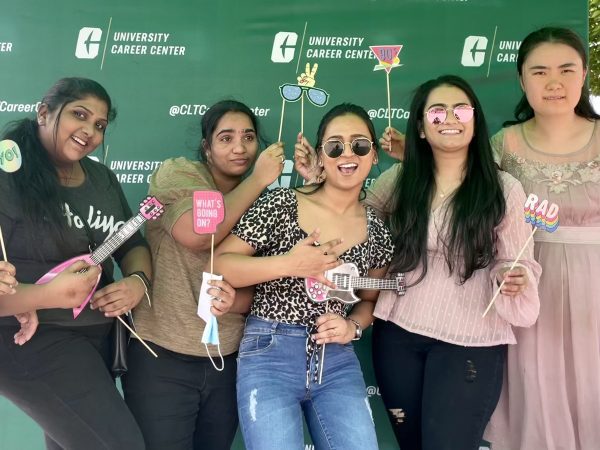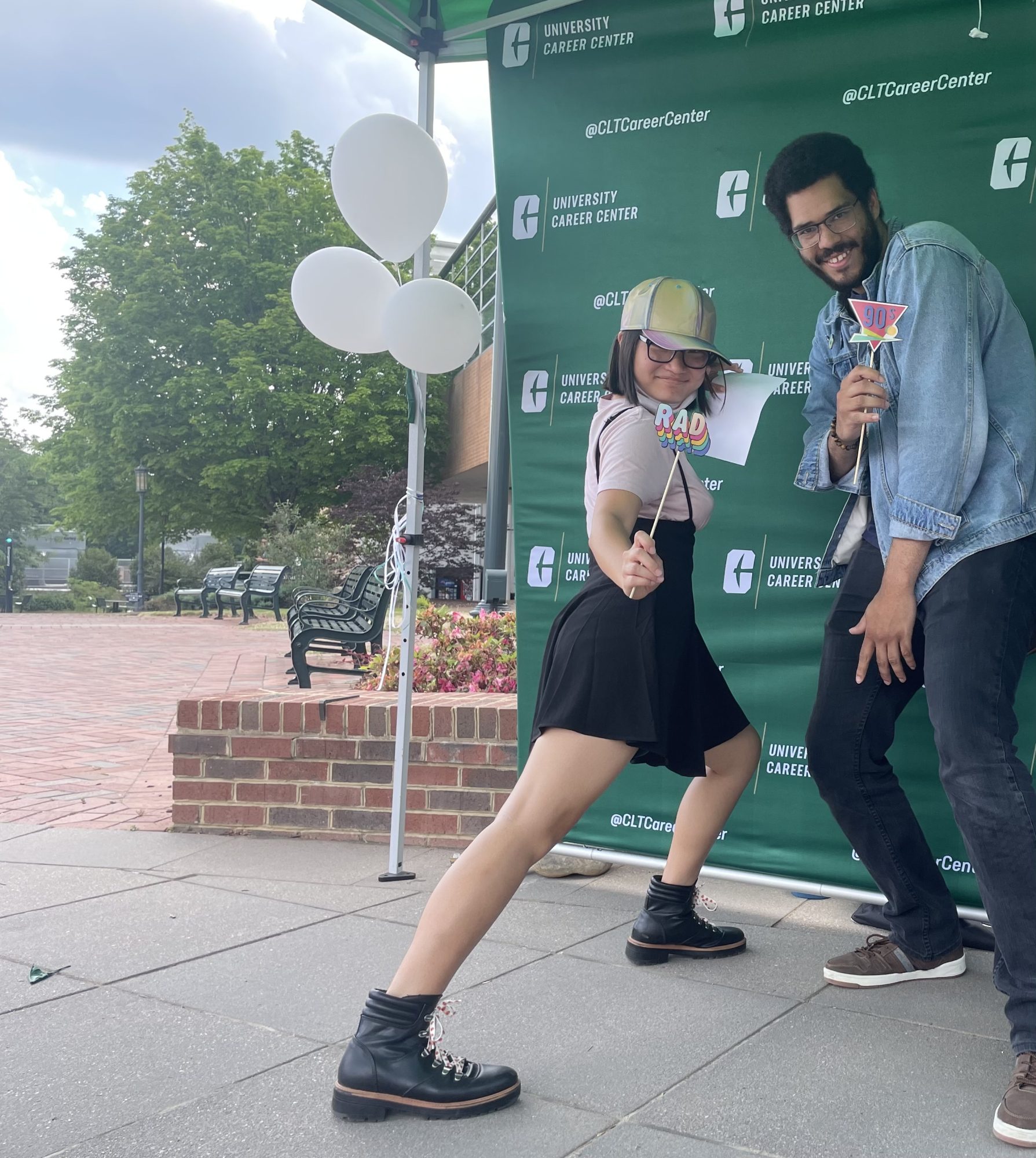Building a new partnership around student success

By Mae Israel
More than 300 students turned out for the first UNC Charlotte party for seniors sponsored by the career services center. Many of them posed in front of a college-themed green backdrop or played with Slinkys and other small toys, and t also completed a survey about their post-graduation plans.
 Here’s what set this gathering apart: students participating in an innovative student leadership program offered strategies to capture student interest, helping to design an event rather than just participate. They advised the career center to provide a place for pictures that can be posted to Instagram and to give away fun trinkets, spurring greater student engagement.
Here’s what set this gathering apart: students participating in an innovative student leadership program offered strategies to capture student interest, helping to design an event rather than just participate. They advised the career center to provide a place for pictures that can be posted to Instagram and to give away fun trinkets, spurring greater student engagement.
“Just the fact that we had over 300 students was a success,” said Patrick Madsen, director of the University Career Center. The event’s goal was to get more seniors to share whether they will be entering the workforce or continuing their education. “This will be something that we will continue to do.”
There were other suggestions this spring, not only for UNC Charlotte’s career center but the one at Johnson C. Smith University. Students from both universities presented their ideas through a unique program that encouraged them to use their own experience to increase student engagement with university resources and reduce the number of college dropouts.
“Everyone as a whole thought this first year went well,” said Lakisha Rios, a UNC Charlotte adjunct lecturer who led the inaugural fall and spring sessions of the program. “The students talked of having more confidence in their voice and more confidence speaking to others who are not students or instructors. It gave them the opportunity to engage with professionals.”
Supported by Novant Health, UNC Charlotte and Johnson C. Smith created the Student Success Lab Innovation Fellowship primarily for Black and other students of color facing challenges related to income, transportation and being the first in a family to attend college.
[Read more from Novant: ‘I needed somebody to believe in me.’ And then they did.]
Students received weekly training in leadership, research, communication, networking and other skills that will benefit them after graduation. Novant officials and university administrators served as mentors. By the end of the spring semester, students were asked to use their new skills, perspectives and lived experiences to offer solutions for issues affecting retention and graduation rates.
As Karen Morgan, Senior Vice-President of Academic Affairs at Johnson C. Smith told the students during last year’s opening session: “We are providing the toolkits for you, the resources for you. If you have a hashtag, you can hashtag yourselves student innovators.”
The program will start again in fall 2022 for another group of 12 students, with additional financial support from Novant.
“I think the next iteration can only get better,” said Rios, “especially having the commitment of all the partners.”
The Process
The idea for the Student Success Innovation Lab Fellowship began with conversations among Byron P. White, UNC Charlotte’s Associate Provost for Urban Research and Community Engagement, Johnson C. Smith President Clarence Armbrister and Raki McGregor, Senior Vice-President of Digital Equity and Community Growth within the digital products and services division.
In less than a year, a program format was developed, Novant provided $50,000 and a dozen students were recruited, six from each university. Students received a $2,000 stipend each semester to make it easier for them to participate.
“I am a byproduct of this type of investment, this type of support of our young people,” said McGregor. “We will be mentoring the students. We will be providing access. We will be listening and learning from them and we will be compensating them.”
Students met weekly via Zoom or in classrooms at UNC Charlotte or Johnson C. Smith. Their initial project ideas focused on several areas: Barriers and engagement; networking and employment; mental health and disability services; and transfer students and adult learners.
Their ideas were varied, including:
- Solicit student organizations to promote mentoring resources and the availability of internships.
- Increase social media advertising about the career center resources, particularly to freshmen and sophomores.
- Change the name of disability services to focus on accessibility so students aren’t embarrassed about seeking extra help.
- Develop more research on how to support transfer students and adult learners, who often are working and raising a family while in college.
Program organizers evaluated the ideas to select a single proposal, which, when fine-tuned, could be developed into a feasible plan to be implemented at the universities.
The Outcome
In late April, two teams of students, armed with research papers, stood before a group of Novant officials and university administrators to present final recommendations.
For Johnson C. Smith, students offered proposals for increasing student engagement with the career services center, including integrating an introduction to career services into the freshman curriculum and urging faculty members to promote use of the center’s resources. Career centers generally provide strategies for developing career goals, job search skills, internship information and access to employers.
“The career center can’t be a one-man band,” said Jeyza Gary, who graduated this spring from UNC Charlotte. “It needs help from everybody holistically.”